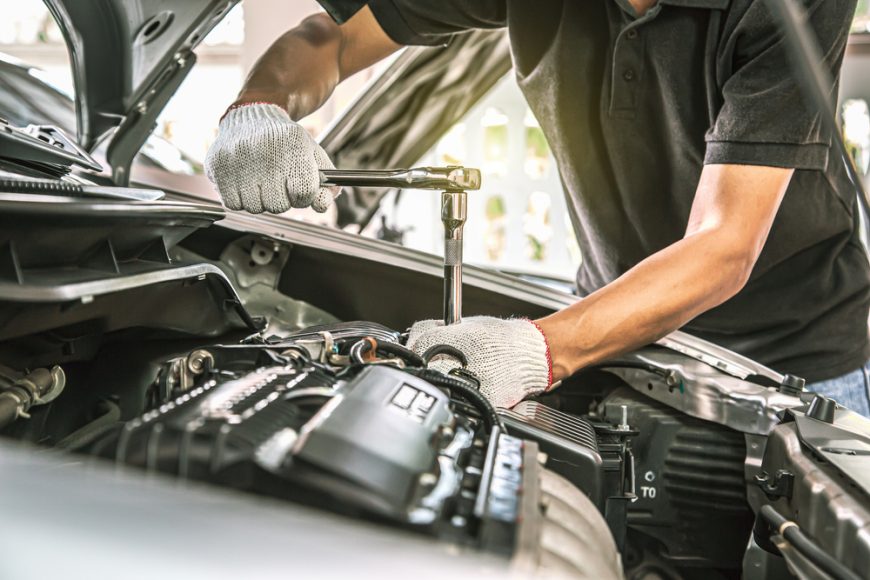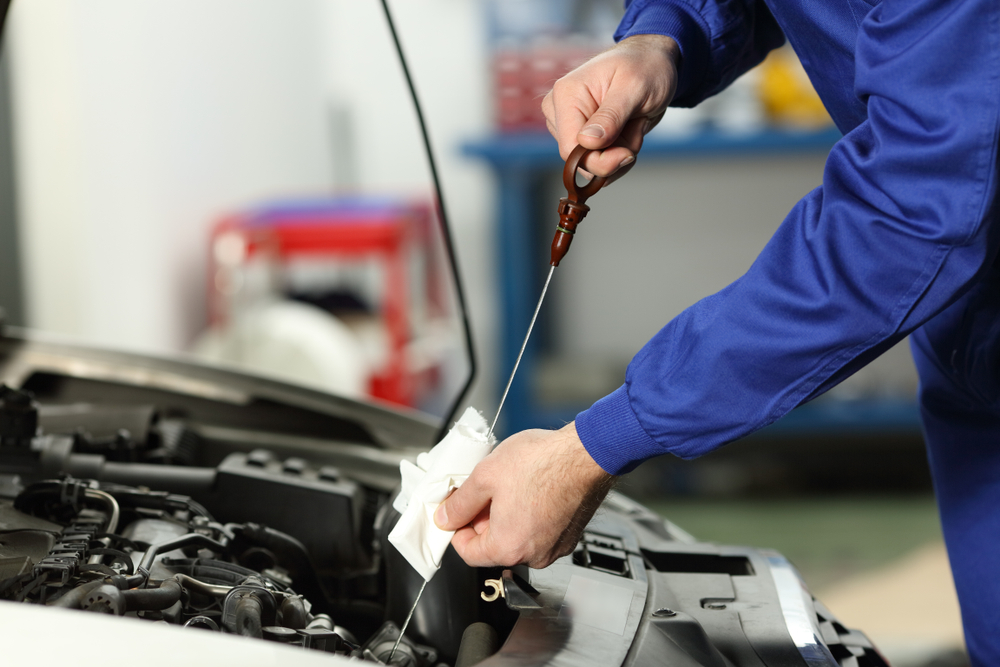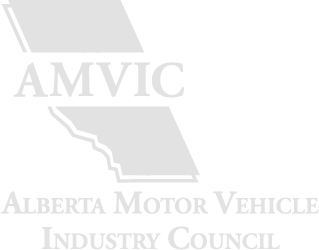- April 1, 2023
- By Park Muffler
- In Blog, Vehicle Maintenance
Diesel Vehicle Car Tips (Versus Gasoline Vehicles)

If your diesel car works as hard as you do, it’s important to know how to keep it in tip-top shape.
You can always bring your vehicle to the professional technicians at Park Muffler for diesel mechanic service, but it doesn’t hurt for you to know how you can maintain and take good care of your car or truck.
Here are some diesel car tips as well as the main differences between diesel and gasoline engines:
What Are the Biggest Differences Between Gasoline and Diesel?
Understanding how to maintain your diesel vehicle properly begins with knowing the difference between diesel engines and gasoline engines:
Engine Operation
Both diesel and gasoline engines operate in similar ways. They both use internal combustion and rapid explosions to turn fuel into energy.
The difference between the two is how these explosions occur.
In a gasoline engine, the fuel is mixed with air and compressed by pistons. The vehicle’s spark plugs ignite this fuel and air mixture to move the vehicle.
In a diesel engine, the air is compressed and heated first before the fuel is ignited.
Fuel Injection
Diesel and gasoline engines inject fuel in different ways.
In a diesel engine, the fuel is injected directly into the cylinder, and the injectors must be able to withstand high temperatures and pressure. This creates a fine mist of fuel that is necessary for the process to work.
In a gasoline engine, fuel injection happens either through port injection or a carburetor. The port injection system injects air into the fuel before the intake stroke, and a carburetor mixes the air and fuel before sending it to the cylinders.
Power Output
Diesel engines tend to have higher torque (what gets the vehicle going and helps it move heavy loads) and lower horsepower.
This is why big trucks tend to have diesel engines while sports cars have gasoline engines.
Efficiency
There are also differences in efficiency when it comes to diesel engines and gasoline engines.
Diesel engines are usually more fuel efficient due to how the engine works. Because a diesel engine doesn’t have fuel in the mixture during the intake stroke, it can compress the air more, which results in better gas mileage.
A gasoline engine has a lower compression ratio to ensure it never reaches the self-ignition temperature, which can damage the engine.
Fuel
Lastly, and maybe most obviously, diesel and gasoline engines use different types of fuel due to their differences in operation.
Although both types of fuel start as crude oil, diesel fuel is thicker, evaporates slower, and has more energy density.
Diesel Engine Maintenance Tips
To keep your diesel vehicle in good shape, here are some maintenance tips you should follow to avoid diesel engine repair:
- Check and flush your coolant. Coolant is important for diesel engines and will become more acidic over time, which can rot parts of your vehicle’s cooling system.
- Keep your engine clean. Dirt and grime can damage your diesel engine, so make sure you keep your engine’s fuel, oil, and air clean.
- Change your fuel filters. Fuel filters should be routinely changed to ensure the optimal performance of your diesel engine.
- Change your air filters. Protect your diesel engine by making sure your air filters are clean and effective.
- Oil changes. Your diesel engine’s oil should be changed regularly and more frequently if you use your vehicle for hard driving or towing.
Pros and Cons of a Diesel Vehicle
Although diesel cars are less popular than their gasoline counterparts, there are benefits to owning this type of vehicle.
Of course, there are disadvantages as well!
Let’s look at the pros and cons of owning a diesel vehicle:
Pros of a Diesel Vehicle
- Efficiency: Because diesel vehicles use a richer source of usable energy, you can expect to get up to 35% more miles per gallon.
- Increased Torque: The high compression ratio of a diesel engine helps it generate more torque, which makes it a great choice for pulling or towing.
- Lower Emissions: Modern diesel vehicles produce less CO2 gas per gallon of fuel than gasoline engines.
- Value: Diesel vehicles typically depreciate more slowly than gasoline vehicles.
Cons of a Diesel Vehicle
- Particulate Filter Clogs: If you do most of your driving going low speeds for short distances, you run the risk of clogging the diesel engine’s particulate filter. Diesel vehicles are best suited for highway driving.
- They’re Not for Sporty Driving: Diesel vehicles favor torque over speed, so they are not as fun to drive as gasoline vehicles.
- Upfront Cost: Diesel vehicles typically cost significantly more than those with a gasoline engine. You’ll need to drive the vehicle for a couple of years before you break even with the savings.
- Maintenance: Although diesel vehicles need less frequent maintenance, they can often cost more to maintain and repair.
Sherwood Park’s Top Auto Shop
Thankfully, the team at Park Muffler is here to take care of all your diesel engine needs at competitive prices!
Get in touch with us today to find out more about our diesel engine repair and maintenance services.
© Park Muffler - All Rights Reserved.


